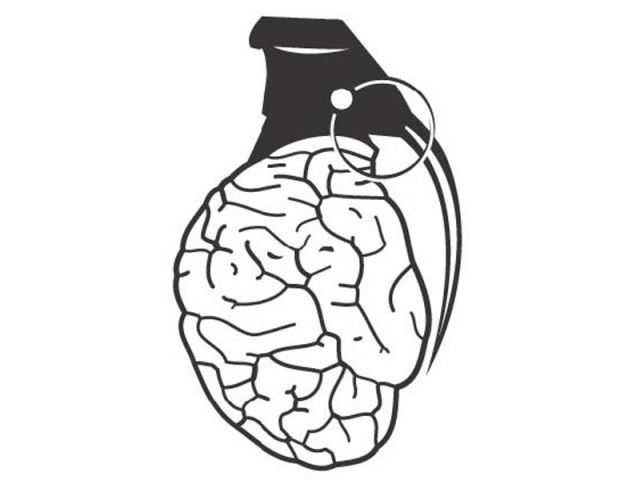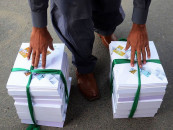Psychological scars: From the warzone to the couch
Residents of FATA, K-P and Afghanistan deal with depression, mania and anger management issues.

Psychological scars: From the warzone to the couch
Aurangzeb* can barely speak as he tells his story to a psychiatrist in a hospital on the outskirts of Peshawar. He stammers, saying he has not slept for days. Dr Iftikhar Hussain tells Aurangzeb, 21, that he is suffering from anxiety and depression.
The patient, from Kurram Agency, is clear about the origins of his mental condition. “They (the Taliban) kidnapped my elder brother, and when we tried to go after them, they shot at us and killed my younger brother,” he says.
He is not the only one from the Federally Administered Tribal Areas (Fata) visiting this three-floor mental health facility run by Dr Iftikhar, who is himself a victim of the Taliban, having been kidnapped a few months ago, eventually paying ransom for his release.
Dr Iftikhar says he even has patients who visit him from Afghanistan. “This is an epidemic sort of situation. I believe 80% of the Pashtun population has mental health issues they are unaware about,” he says.
As Aurangzeb’s therapy session ends, a couple walks in. This time it’s the woman who needs help. “My wife has anger management issues and she keeps beating up our children. She was never like this before,” says Sharif Afridi. The couple, from Bara town, Khyber Agency, was made homeless. “The militants drove us out of our homes and now the Pakistan military is not letting us go home. My wife has been unable to cope with this,” he adds.
Sharif and his family have been refugees on the move for more than three years. He does not think his wife’s mental state will improve unless they return home. The therapist recommends a few medicines and counsels the woman for a while before they leave.
Dr Iftikhar says he sees as many as a 50 patients a day, all suffering from different disorders. “Most of them are suffering from mental health problems due to the ‘war on terror’. The biggest fear they have is of the unknown. They have seen so much ‘unnatural’ death that it is hard for them to cope.” Dr Ifitikhar says some patients have been visiting him since the Afghan conflict started in 2001.
Another patient, Ashraf*, who the doctor sees next, is from Batkhela, Malakand Division. He is employed at a local school in his town and has been seeing the doctor for about five years. “I fear that the Taliban will take over our cities again and will blow up the school where I teach,” he says.
His area was occupied by militants but was cleared in 2009 after a military operation but even now the Pakistan military has considerable presence in the area, indicating that the region is still vulnerable.
Although there is a huge queue of patients waiting outside the therapist’s room, many don’t even make it this far due to security concerns. Consequently, Dr Iftikhar launched a field project. He previously went around Fata and Khyber-Pakhtunkhwa but says it’s not possible anymore. “It is risky and there is no support from the government to help us out.”
According to another psychiatrist at the facility, there is bigger fallout from these mental disorders – recruitment by the Taliban. “Drone attacks, military operations and acts of terrorism are a cause for manic behavior, which is exploited by the Taliban,” Dr Amir Abbas says, adding that manic patients can easily be brainwashed into committing acts of terror. “There needs to be concerted effort to deal with it,” he adds.
*Names have been changed at the individual’s request
Published in The Express Tribune, April 30th, 2012.



















COMMENTS
Comments are moderated and generally will be posted if they are on-topic and not abusive.
For more information, please see our Comments FAQ